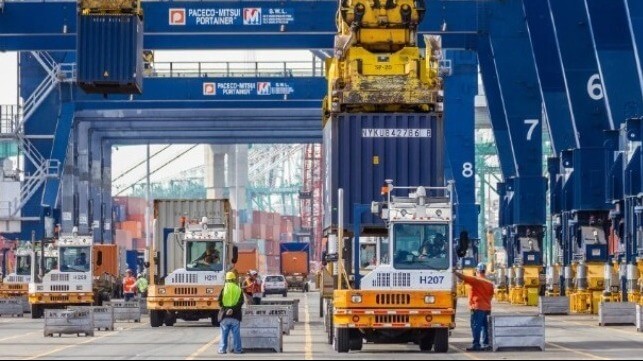FMC Reports Jump in Charge Complaints Against Common Carriers

The U.S. Federal Maritime Commission is reporting a strong rise in charge complaints as shippers respond positively to the Ocean Shipping Reform Act of 2022. This comes as the FMC continues to take steps to define the processes and fulfill the mandate from the U.S. Congress requiring key milestones in the enactment and enforcement of the changes governing ocean shipping.
One of the key areas that the reforms to the governance of the industry focused on was charges coming from the carriers. Shippers and truckers complained to the U.S. Congress about the dramatic rise in detention and demurrage charges (D&D). The legislation sought to provide relief including shifting much of the onerous for justifying the charges to the carriers.
Since the law’s enactment in June, the FMC reports it has received more than 175 filings in less than six months. “U.S. shippers have responded positively to the new opportunity, established via the Ocean Shipping Reform Act of 2022, to challenge carrier charges by filing Charge Complaints at the FMC,” they reported in an announcement defining new processes for the complaints. “The process being shared today clarifies the interim steps the commission will take under this new authority.”
Congress set deadlines for the FMC to enact the elements of the legislation. Today, the FMC detailed its interim procedures for processing charge complaints. When the commission received a complaint with “sufficient information and detail,” it will launch a multi-stage progress of investigation by its newly staffed Office of Investigations.
The common carrier will be contacted by commission staff and asked to respond to the complaint, and justify the charge or fee being investigated. The result of the investigation could lead to an order for the common carrier to show why it should not be ordered to refund the fees or charges paid or waive the fees in question. Then the FMC will decide if the charge is in compliance, if a refund or waiver is due and if a separate civil penalty proceeding is appropriate.
The goal of the Act was to both simplify and expedite the process while making the carrier more responsible in the process. The FMC, however, notes that shippers and others filing complaints would still be able to file a small claim or formal complaints if the Office of Enforcement’s investigation does not result in a positive action.
The effort to define the interim procedures was a required milestone in the enactment of the legislation. The FMC notes that experience gained from these first proceedings will guide the Commission on what form a permanent process should take.
